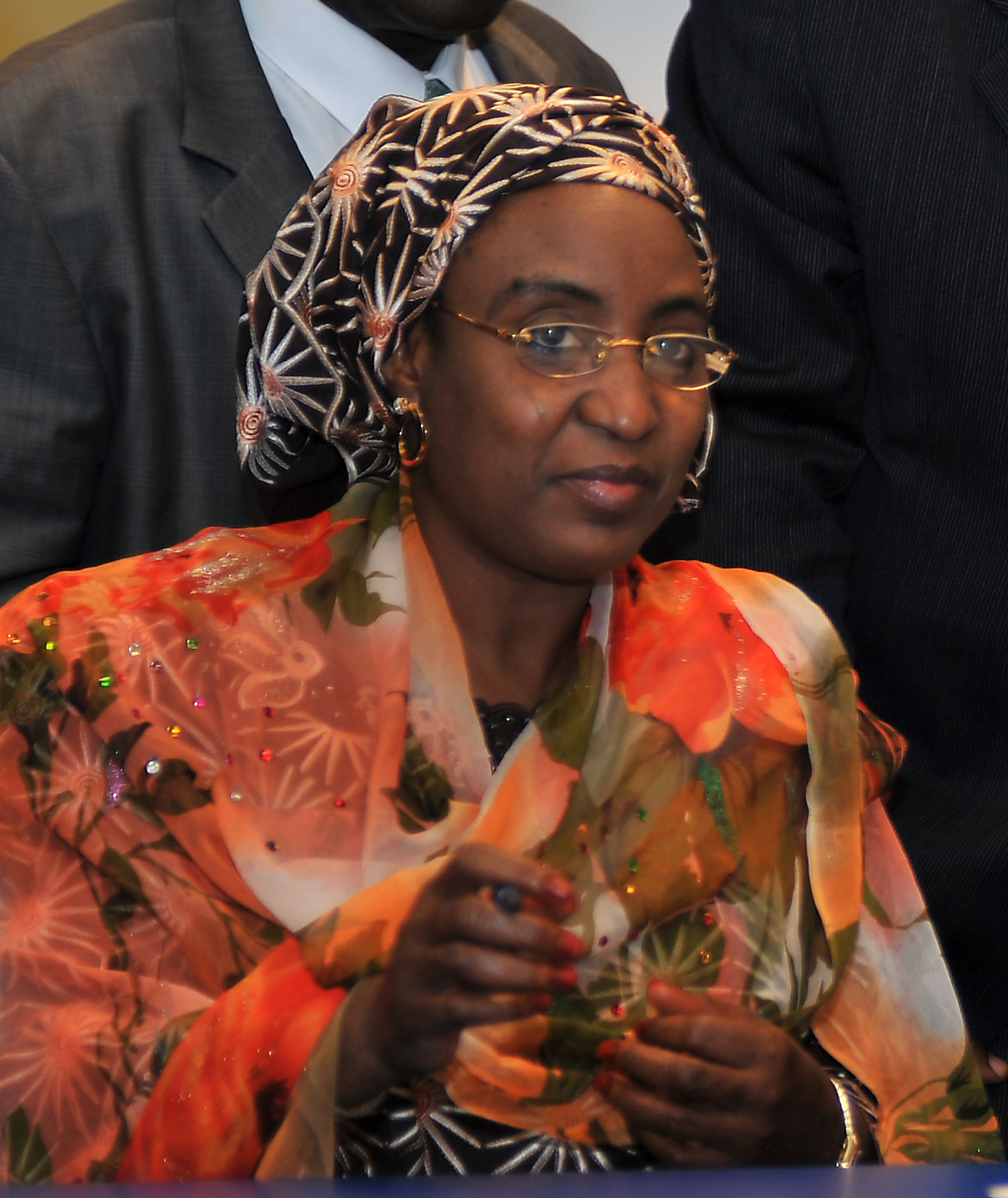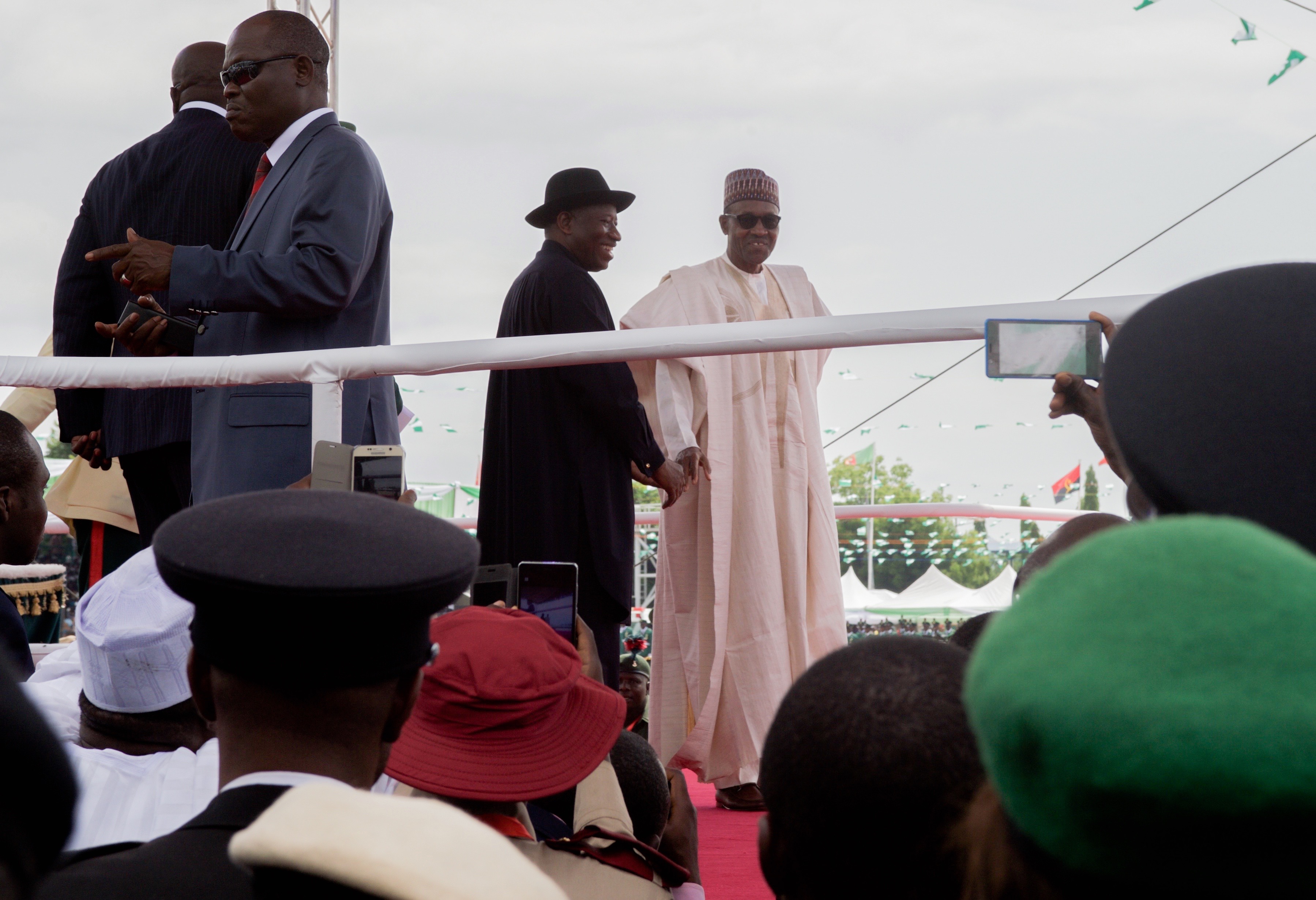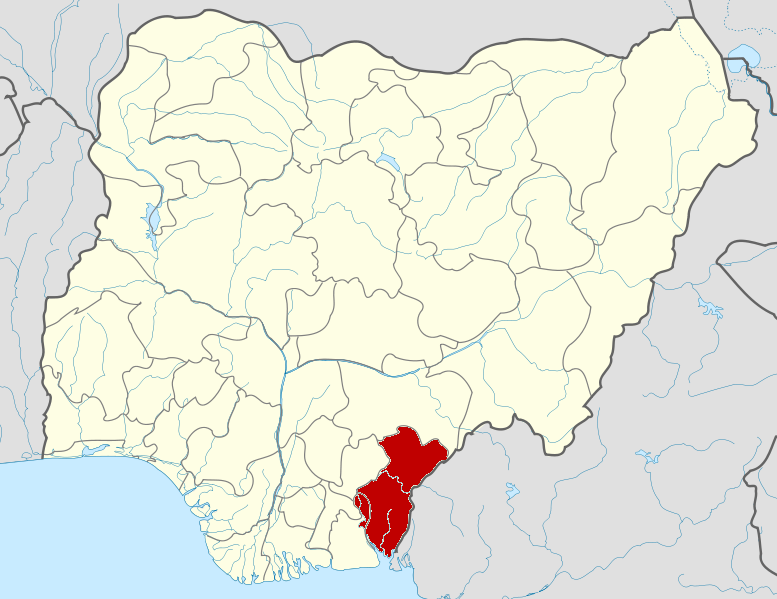|
Joseph Wayas
Joseph Wayas (21 May 1941 – 30 November 2021) was Nigeria's Senate President during the Nigerian Second Republic (1979–1983). Background Wayas was born in Basang, Obudu, Cross River State on 21 May 1941 and attended the Dennis Memorial Grammar School, Onitsha. He went to the United Kingdom where he studied at the Higher Tottenham Technical College, London, the West Bronwich College of Commerce, Science and Technology, Birmingham and Aston University, Birmingham. Returning to Nigeria, he worked as a manager or controller from 1960-1969 for several companies in Nigeria and the United Kingdom. Wayas was a member of the Society of International Affairs at the Lincoln University, United States. Wayas joined the Federal Government in 1969-72. He was commissioner for Transport, South-Eastern State, now broken into Akwa Ibom and Cross River states from 1972-74. He was a member of the constituent Assembly in 1977-78. Senate President When General Olusegun Obasanjo terminated m ... [...More Info...] [...Related Items...] OR: [Wikipedia] [Google] [Baidu] |
President Of The Senate Of Nigeria
The president of the Nigerian Senate is the presiding officer of the Senate of Nigeria, elected by its membership. The senate president is second in line of succession to the Nigerian presidency, after the Vice President of Nigeria. The current President of the Senate is Ahmad Lawan. Selection and succession to presidency The senate president is chosen in an indirect election conducted within the senate. The line of succession to the Nigerian presidency goes to the Vice President, and then the senate president should both the President and Vice President be unable to discharge the powers and duties of office. List of Nigerian Senate Presidents Trivia * Nwafor Orizu was the only Senate President of Nigeria ever to ascend to the Nigerian presidency through the constitutional order of succession. He was later forced to handover power to Aguiyi-Ironsi military junta. * David Mark became the first person to retain the Presidency of the Senate and serve a second term in 2011. He ... [...More Info...] [...Related Items...] OR: [Wikipedia] [Google] [Baidu] |
Shehu Shagari
Shehu Usman Aliyu Shagari (25 February 1925 – 28 December 2018), titled Turakin Sokoto from 1962, was the first democratically elected President of Nigeria, after the transfer of power by military head of state General Olusegun Obasanjo in 1979 giving rise to the Second Nigerian Republic. An experienced politician, he briefly worked as a teacher before entering politics in 1951; and was elected into the House of Representatives in 1954. At various times between 1958 through independence of Nigeria in 1960 and 1975, he held a cabinet post as a federal commissioner or as a federal minister. As President, Shagari presided over the mass deportation of West African migrants in 1983, which primarily impacted Ghanaian migrants in Nigeria. Early years Shehu Usman Shagari was born on 25 February 1925 in Shagari to a Sunni Muslim Fulani family. Shagari was founded by his great-grandfather, Ahmadu Rufa'i. He was raised in a polygamous family, and was the sixth child born into th ... [...More Info...] [...Related Items...] OR: [Wikipedia] [Google] [Baidu] |
Umaru Yar'Adua
Umaru Musa Yar'Adua (16 August 19515 May 2010) was a Nigerian politician who, was the President of Nigeria from 2007 to 2010. He was declared the winner of the Nigerian presidential election held on 21 April 2007, and was sworn in on 29 May 2007. He served previously as the governor of Katsina state from 1999 to 2007; and was a member of the Peoples Democratic Party (PDP). In 2009, Yar'Adua left for Saudi Arabia to receive treatment for pericarditis. He returned to Nigeria on 24 February 2010, but died on 5 May. Early life Family Yar'adua was born in Katsina state, Nigeria. His father, Musa Yar'Adua, was a Minister for Lagos in the First Republic and held the chieftaincy title of Matawalle (custodian of the royal treasury) of the Katsina Emirate, a title which Yar'Adua inherited. His paternal grandfather, Malam Umaru, had also held the title of Matawallen Katsina, while his paternal grandmother, Binta, a Fulani from the Sullubawa clan, was a princess of the Katsina E ... [...More Info...] [...Related Items...] OR: [Wikipedia] [Google] [Baidu] |
Goodluck Jonathan
Goodluck Ebele Azikiwe Jonathan (born 20 November 1957)Lawson Heyford, ''The Source'' (Lagos), 11 December 2006. is a Nigerian politician who served as the President of Nigeria from 2010 to 2015. He lost the 2015 presidential election to former military head of state General Muhammadu Buhari, and was the first incumbent president in Nigerian history to concede defeat in an election. Prior to that, he served as Vice President of Nigeria from 2007 to 2010 under the administration of Umaru Musa Yar'Adua; and in oil-rich Bayelsa State as Governor of Bayelsa State from 2005 to 2007. Early life Goodluck Jonathan was born on 20 November 1957 in Ogbia to a Christian family of canoe makers,Lawson Heyford"Jonathan: A Colossus at 49", ''The Source'' (Lagos), 11 December 2006. . Al Jazeera.net. from the |
Order Of The Niger
Nigeria became an independent country on 1 October 1960 and in 1963 became the Federal Republic of Nigeria. The republic instituted two orders of merit: the Order of the Niger and the Order of the Federal Republic. Award The two highest honours, the Grand Commander in the Order of the Federal Republic and Grand Commander in the Order of the Niger are awarded to the president and vice-president respectively. The presiding judge in the Supreme Court and the chairman of the Senate are qualitative and ex officio commander in the Order of the Niger. Grades The Nigerians followed the British British may refer to: Peoples, culture, and language * British people, nationals or natives of the United Kingdom, British Overseas Territories, and Crown Dependencies. ** Britishness, the British identity and common culture * British English, ... example in the form and structure of the order. Similarly, there are post-nominal letters for members of the Order of the Niger. * Grand Comma ... [...More Info...] [...Related Items...] OR: [Wikipedia] [Google] [Baidu] |
Nigerian Civil War
The Nigerian Civil War (6 July 1967 – 15 January 1970), also known as the Nigerian–Biafran War or the Biafran War, was a civil war fought between Nigeria and the Republic of Biafra, a secessionist state which had declared its independence from Nigeria in 1967. Nigeria was led by General Yakubu Gowon, while Biafra was led by Lieutenant Colonel C. Odumegwu Ojukwu, Chukwuemeka "Emeka" Odumegwu Ojukwu. Biafra represented the nationalist aspirations of the Igbo people, Igbo ethnic group, whose leadership felt they could no longer coexist with the Federal government of Nigeria, federal government dominated by the interests of the Muslim Hausa-Fulanis of Northern Nigeria. The conflict resulted from political, economic, ethnic, cultural and religious tensions which preceded the United Kingdom's formal decolonization of Nigeria from 1960 to 1963. Immediate causes of the war in 1966 included 1966 Nigerian coup d'état, a military coup, 1966 Nigerian counter-coup, a counter-coup, and 19 ... [...More Info...] [...Related Items...] OR: [Wikipedia] [Google] [Baidu] |
Federalism
Federalism is a combined or compound mode of government that combines a general government (the central or "federal" government) with regional governments (Province, provincial, State (sub-national), state, Canton (administrative division), cantonal, territorial, or other sub-unit governments) in a single political system, dividing the powers between the two. Federalism in the modern era was first adopted in the unions of states during the Old Swiss Confederacy. Federalism differs from Confederation, confederalism, in which the general level of government is subordinate to the regional level, and from devolution within a unitary state, in which the regional level of government is subordinate to the general level. It represents the central form in the pathway of regional integration or separation, bounded on the less integrated side by confederalism and on the more integrated side by devolution within a unitary state. Examples of a federation or federal province or state include ... [...More Info...] [...Related Items...] OR: [Wikipedia] [Google] [Baidu] |
Donald Duke
Donald Duke (born 30 September 1961 in Calabar) is a Nigerian politician. He was the Governor of Cross River State, Nigeria from 29 May 1999 to 29 May 2007 and the 2019 Nigeria Presidential candidate for Social Democratic Party, SDP. Personal life and education Duke was born to Henry Etim Duke who was the second indigenous (after Ayodele Diyan) and longest serving Controller General of the Nigeria Customs Service (then referred to as Chairman board of Customs and excise duties) He attended Corona School, Lagos and Federal Government College, Sokoto. He received his LLB degree in 1982 from Ahmadu Bello University, Zaria - Nigeria, the B.L in 1983 from the Nigerian Law School, Lagos and a L.L.M. in Business Law and Admiralty in 1984 from University of Pennsylvania. Political career Spearheading the incumbent debt of Nigeria, Duke pushed for democracy and against military control. He stated; "What got the military out of power was not democracy but the dreadful state of th ... [...More Info...] [...Related Items...] OR: [Wikipedia] [Google] [Baidu] |
People's Democratic Party (Nigeria)
The Peoples Democratic Party is one of the two major contemporary political parties in Nigeria, along with its main rival, the All Progressives Congress. Its policies generally lie towards the centre-right of the political spectrum. It won every presidential election between 1999 and 2011 and was, until the 2015 elections, the governing party in the Fourth Republic, although sometimes amid a few controversial electoral circumstances. History In 1998, the PDP in its first presidential primary election held in Jos, Plateau State, North Central Nigeria nominated former military leader Olusegun Obasanjo who had just been released from detention as political prisoner as the presidential candidate in the elections of February 1999, with Atiku Abubakar (Governor-Elect of Adamawa State and a former leading member of the Social Democratic Party) as his running mate. They won the presidential election and were inaugurated 29 May 1999. In the legislative election held on 12 April 200 ... [...More Info...] [...Related Items...] OR: [Wikipedia] [Google] [Baidu] |
All People's Party (Nigeria)
The All People's Party (APP) is a former Nigerian political party. It was formed in late 1998 during a transition from military to civilian rule by a coalition of associations that received considerable support under the regime of Sani Abacha. Most of the party's support came from the middle belt region and parts of the north. Following gubernatorial elections in January 1999, the People's Democratic Party (PDP) emerged as the dominant political party. As a result, the APP and another party – the Alliance for Democracy (AD) – formed a coalition to contest the upcoming presidential election. Olu Falae of the AD was chosen as the coalition's presidential candidate, while Umaru Shinkafi of the APP was chosen as his running mate. In the 20 February 1999 legislative elections, the APP won 20 out of 109 Senate seats and 68 out of 360 seats in the House of Representatives. The presidential election, held on 29 February 1999, was won by PDP candidate Olusegun Obasanjo. He receiv ... [...More Info...] [...Related Items...] OR: [Wikipedia] [Google] [Baidu] |
Muhammadu Buhari
Muhammadu Buhari (born 17 December 1942) is a Nigerian politician and current president of Nigeria since 2015. Buhari is a retired Nigerian Army major general who served as the country's military head of state from 31 December 1983 to 27 August 1985, after taking power in a military coup d'état. The term Buharism is ascribed to the authoritarian policies of his military regime. Buhari ran for president of Nigeria in 2003, 2007, and 2011. In December 2014, he emerged as the presidential candidate of the All Progressives Congress party for the 2015 general election. Buhari won the election, defeating incumbent President Goodluck Ebele Jonathan. This was the first time in the history of Nigeria that an incumbent president lost a general election. He was sworn in on 29 May 2015. In February 2019, Buhari was re-elected, defeating his closest rival, former Vice President Atiku Abubakar, by over 3 million votes. Early life Buhari was born to a Fulani family on 17 December ... [...More Info...] [...Related Items...] OR: [Wikipedia] [Google] [Baidu] |
Clement Isong
Clement Nyong Isong, CFR (20 April 1920 – 29 May 2000) was a Nigerian banker and politician who was governor of the Central Bank of Nigeria (1967–1975) during the military regime of General Yakubu Gowon. He was later elected governor of Cross River State (1979–1983) in the Nigerian Second Republic. Background Isong was born on 20 April 1920 in Eket, Akwa Ibom State. He studied at University College, Ibadan, Iowa Wesleyan College, Mount Pleasant, Iowa, and the Harvard Graduate School of Arts and Sciences, where he obtained a Ph.D. in Economics. He taught economics in the University of Ibadan before joining the Central Bank of Nigeria (CBN) as secretary, later becoming director of research. He was seconded to the International Monetary Fund as an adviser in the African Department. Central bank governor Yakubu Gowon appointed Isong governor of the CBN in August 1967, an office he held until September 1975. He headed the CBN during the Nigerian Civil War (July 1967 – Janua ... [...More Info...] [...Related Items...] OR: [Wikipedia] [Google] [Baidu] |




